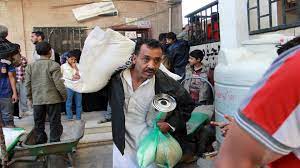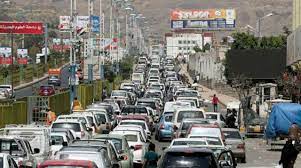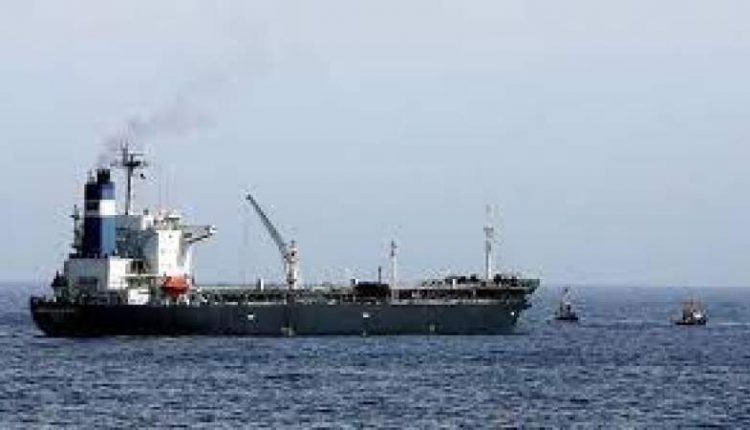Repercussions Collapse of Services Due to Blockade on Only Lifeline of Yemenis
The slow death hands are accelerating in Yemen, with dire consequences threatening the lives of millions of civilians, especially in light of the United Nations talk of more than 22 million people are in need of humanitarian assistance. Seven million of them are facing famine. The body noted in its reports that the lives of Yemenis depend on the survival of the coastal city of Hodeidah and its port.
Siege against life

The siege of any country by other countries is one of the most heinous crimes committed in human history, and it is a genocide of an entire people. Besieging humans and preventing them from the most basic necessities of life, is to abandon humanity, which is the common denominator for all the inhabitants of the earth, regardless of their different nationalities, systems and principles.
Besieging a country means besieging its children, the elderly, women, the sick and people with special needs, sentencing them all to death after depriving them of the most basic requirements for survival.
According to a UN report published in 2017, the blockade imposed by the US-Saudi aggression was a major cause of famine in Yemen.
Lifeline

Hodeidah is Yemen’s third largest city, and is a major lifeline for imports into Yemen, a country that is 80–90% dependent on imported food, medicines and fuel for its survival.
Hodeidah is one of the most vital ports for Yemen, which the US-Saudi aggression closed completely for nearly seven years, under the pretext of preventing the flow of weapons from Iran to the Salvation Government forces in the capital, Sana’a – a claim categorically denied by Tehran.
That closure pushed a further 3.2 million people into hunger, according to the World Food Programme (WFP). And, according to the Independent, humanitarian agencies have said the blockade was a significant driver of famine in the country.
In turn, Save the Children spokesperson Bhanu Bhatnagar has warned that a complete closure of Hodeidah port “would lead to a devastating cut in the humanitarian and commercial support chain just as it’s needed most.”
“Food imports have already reached the lowest levels since the conflict started and the price of basic commodities has risen by a third,” Bhatnagar is quoted as saying in the Independent.
Save the Children further warned that an additional 340,000 people could be displaced if the port was attacked, following Amnesty International’s previous warning that there is a lack of shelter for displaced people.
Suffocating fuel crisis

The current fuel crisis in Yemen is not new. The country’s coasts have long been besieged by dozens of American, Western, Saudi and Emirati warships, which prevent ships loaded with fuel, foodstuffs and medicine from reaching their last berth, the port of Hodeidah.
What distinguishes the fuel crisis this time is that it has reached unprecedented levels, according to the Yemen Petroleum Company, as a result of the coalition’s persistence in seizing oil ships, and completely preventing any fuel vessel from entering the port.
The fuel crisis in which the Yemeni people suffer has had catastrophic effects on all areas of life and worsened the humanitarian situation in Yemen, in light of the UN’s inability to put an end to the suffering affecting Yemenis as a result of preventing oil ships from entering the port of Hodeidah.
The crisis has left almost complete paralysis of the movement of cars, transport vehicles, food carriers, and others, to the point of threatening to stop work in service and health facilities, and all ways of life dependent on energy, with dire consequences for the defenseless population and depriving them of a safe and stable life.
Health crisis

According to reports by international human rights and humanitarian organizations, the health system in Yemen has been severely weakened after eight years of war and a prolonged siege. About half of the country’s health facilities are out of service as a result of their destruction by US-Saudi airstrikes, while many operating centers have very limited capacities.
Most of the population in Yemen lacks health care because of the destruction of health facilities in their areas or because of the lack of energy, medicines and medical equipment as a result of the siege imposed on them.
The fuel crisis compounded the situation and led to an almost complete paralysis of the health sector, which threatens to close many of them, especially the private sector hospitals. Last Sunday, private hospitals in the capital, Sana’a, confirmed that the closure had become a serious issue, due to the lack of fuel.
Dr. Magda Al-Khatib, director of the Al-Sabaeen Hospital for Maternity and Childhood, explained that if the Al-Sabaeen Hospital was closed as a result of the fuel crisis, this would be a death sentence for 3,000 pregnant women, and between 400 to 500 children received by the hospital’s nurseries per month. She noted that the United Nations organizations have permanently stopped fuel subsidies since the beginning of 2022.
For his part, Dr. Mutahar Al-Marouni, Director General of the Health Office in the capital, Sana’a, said that in the capital, there are 87 public and private hospitals, 529 public and private medical centers, and 7 oxygen factories, with a monthly need of more than two million liters of diesel.
Source: YPA, translate by Almasirah Net English

